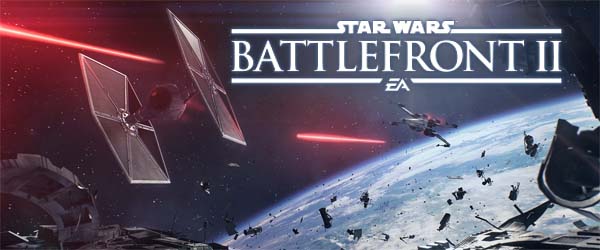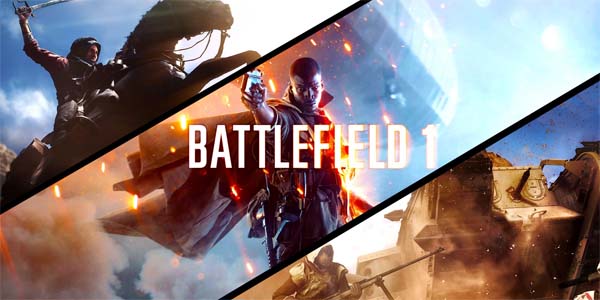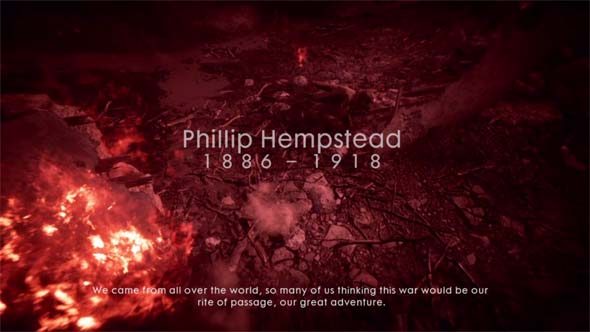
To Madden NFL 20's credit, this year's "demo" game actually does showcase some of the new features of the game. While you're waiting for the game to fully install, you can play the Pro Bowl this year. The Pro Bowl is one of the "new" features in this year's game, and playing this all-star game provides users with a prime opportunity to experience the game's other "new" feature, the Superstar X-Factors.
For some reason though, the game defaults to making the user play as the NFC. I'd much rather have been able to play as the AFC, with Patrick Mahomes as quarterback, so that the game could start off by letting me play a tutorial for the one and only new feature in Madden 20 that is actually new: the run-pass option. Instead, I have to play as Drew Brees, with no RPO tutorial or opportunity to hit the skill trainer, even though the play call screen keeps trying to get me to run the RPOs that I have no idea how to actually execute in the game.
The Pro Bowl demo showcases the new Superstar X-Factors.
So even though this demo Pro Bowl exposed me to new features, it was still a total crap-shoot of an introduction to this year's game. Without any tutorials, I ended up just having to play the game like last year's game and didn't get to actually enjoy any of the new content.
The impetus of Madden 20's design seems to be to bring back features and mechanics that were lost when Madden transitioned to newer consoles -- just in time for the end of this console generation, so they can get lost again! Almost every big new feature is a variation on some mechanic that existed in the game 10 or 15 years ago, even though EA's marketing team wants to insist that these are all new ideas.
Face of the Franchise feels like a re-imagining of the old Superstar mode,
and X-Factors feel like a re-branding of Madden 08's "weapons".
The Pro Bowl is a feature that existed on the PS2 / XBox versions of the game, but which was lost in the transition to the PS3 and XBox 360, was re-added to later PS3 and XBox 360 iterations, before being lost again in the translation to PS4 and XBox One.
The &Superstar X-Factors" are basically just the "Weapons" that were introduced in Madden 08.
The "Face of the Franchise" feature is a hybrid of the old Superstar mode and the more recent Longshot mode.
And so on...
The Pro Bowl was playable in previous generations.
Did anyone even really care that much about getting the Pro Bowl back? I understand wanting the pre-season in the game, there's team-building strategy that goes into preseason, so that has value in the video game. But the Pro Bowl? Heck, I don't even think the player gain experience points from playing in the Pro Bowl, so the game is just as pointless in Madden as it is in real life!That's why the NFL had to move it to before the SuperBowl -- because nobody would watch it. And it's also why they had to relocate it out of Hawai'i -- because anybody who could afford to fly to Hawai'i to watch it would rather just visit Hawai'i than attend the game.
Honestly, this is the sort of thing that I'd expect to be a footnote in the Franchise feature list that gets no fanfare whatsoever, compared to other sweeping changes that I expect to see. The fact that the return of the Pro Bowl is a headline feature just shows how little improvement this series sees from year-to-year.
... [More]
27af76b4-ae92-4344-a2da-658f0d814c79|1|1.0
Tags:Madden NFL, Madden NFL 20, Electronic Arts, EA Sports, Tiburon, football, franchise, Face of the Franchise, ultimate team, x-factor, coverage, huddle, no-huddle, two-minute drill, referees, glitch, eBay
If you're a fan of college sports video games, then you've probably already heard that in the middle of May, the NCAA announced that it would be convening a special group to re-examine the issue of student-athlete compensation for the use of their name and likeness. Lawsuits from former players whose likenesses were being used in college games without their permission (let alone compensation) is the reason that companies like EA and 2K Sports had to stop releasing new college football and basketball games back in 2012 and 2013.
These issues have been in and out of the courts over the years, with most (if not all) cases being decided in favor of the individual athletes and requiring the NCAA, video game publisher, or both to have to pay damages the athlete. Ever since, the NCAA has refused to lend its license to video games in particular, as they have steadfastly refused to allow players to be compensated on the grounds that they are "amateur" student athletes, even though they are the primary driving force of a multi-billion dollar-a-year industry.
College sports games have been absent for quite a few years now.
Over recent years, the NCAA has been receiving mounting public pressure to pay athletes and/or allow them to profit from the use of their likeness in commercial products, and it looks like they might finally cave to this pressure later this year. We've talked about the idea of college sports games returning in the past, but up till now, it's always been purely speculative. This time is a bit different, however, since the NCAA itself is finally taking some actual action on the topic. No final decision will be reached until October, so it's still entirely possible that the committee will decide to retain the status quo, which will mean no NCAA-licensed video games in the foreseeable future.
I already thought 2020 was shaping up to be a good year for football video games,
even before this announcement from the NCAA!
I am optimistic that the NCAA will decide in favor of allowing players to receive compensation. In fact, I think this could actually be a brilliant -- and somewhat insidious -- decision by the NCAA. On the one hand, it allows them to license their brand to video game, which would provide a revenue stream for the NCAA. Secondly, it allows the players (the popular ones, anyway) to get paid, which may quell much of the popular demand for the NCAA themselves to pay athletes a salary.
Lastly, based on what I've read about the proposed rule changes, the deal would allow the license-holder of the game or the manufacturer of the paraphernalia holding the athlete's likeness and/or name to pay the athlete directly. Which means the NCAA isn't actually the one paying the athletes. The athletes are getting paid with someone else's dollar. It would, thus, allow the NCAA to save face by continuing to pretend that they are facilitating an "amateur" sport".
In fact, the NCAA's official statement flat-out says:
"... the group will not consider any concepts that could be construed as payment for participation in college sports. The NCAA’s mission to provide opportunity for students to compete against other students prohibits any contemplation of pay-for-play."
It's a kind of cop-out win-win-win for the NCAA, so it's actually kind of amazing that they didn't consider doing this sooner.
... [More]
0a12818a-150f-4219-9a9d-306fc8c07461|0|.0
Tags:NCAA, college football, college basketball, NCAA Football, College Hoops 2k, Electronic Arts, EA Sports, 2K Games, ultimate team, student athlete, lawsuit, compensation, Ed O'Bannon

I think I've finally decided to take a stab at some long-form video analysis and critique on Youtube. My first go at this came in the form of a nearly-hour-long breakdown of my frustrations with the Madden NFL video game series (broken up into 2 parts). For the benefit of my readers, I'm also transcribing the video onto this blog post. Though reading this post will certainly convey all the same points that I make in the video, I still highly recommend watching the video, as the video footage included will do a better job than screenshots of demonstrating the problems I report. The entire video is embedded below.
If you want to see more (better-produced) video content like this from me, then I invite you to support me on Patreon.
Watch the full video on Youtube.
EA's ethos of releasing a new Madden entry every single year has become a tremendous detriment to the game as a whole. Modern games have become very large, very complicated, and very expensive to create, and every game series that has relied on an annual release cycle has, in my opinion, suffered for it. Even companies like Ubisoft have recognized this, which is why the company has decided to end the cycle of annual Assassin's Creed releases, opting instead for a major release every two or three years, with some large-scale DLC and expansions to fill out the intervening period. Despite re-using the same game engines, the huge cost of creating a new game every year stretches the company's resources further than they can go. Though I still didn't think that Assassin's Creed: Origins was particularly great, the game still clearly benefited from the extra design and development time that the year's hiatus provided, and the general internet consensus is that the game is very good.
Assassin's Creed: Odyssey was released only a year after Origins, and it looks like a terrible, derivative, waste of time fueled by a grindy micro-transaction economy pulled straight out of a mobile free-to-play game, except with a $60 upfront price tag. We'll have to wait and see if Ubisoft follows through on its promise to "spend more time making fewer, better games", or if it goes back to milking its franchises with slapped-together annual releases.
EA's Madden game is in an even worse boat than Assassin's Creed was in. Not only is Madden an annual release, but it's internal resources are being stretched out between multiple, completely divergent game modes! EA has to chose how much resources to devote to each of these modes, and that commitment comes at the expense of the other modes. In addition to having to make general gameplay improvements every year, the team is also tasked with coming up with new features and improvements for Franchise mode, Ultimate Team, and now Longshot. They're basically developing three different games, and trying to squeeze them all into a single annual release cycle.
Madden's resources are divided between three divergent game modes every year!
Worse yet, one of these game modes clearly makes a lot more money than the others... [More]
fa1adaf8-d6b2-48dd-8b1f-eb2158112782|1|5.0
Tags:Electronic Arts, EA Sports, Tiburon, Madden, Madden NFL, Madden NFL 2005, Madden NFL 2006, Madden NFL 25, Madden NFL 17, Madden NFL 18, Madden NFL 19, football, ESPN NFL 2K5, NFL, ultimate team, target passing, QB vision cone, real player motion, true step, passing, running, physics, Infinity Engine, Frostbite, glitch, difficulty, corporate culture, money, YouTube, advertising, marketing, false advertising, Chris Berman, Hank Williams Jr., ESPN, NFL Network, halftime, Monday Night Football

Dang, I was really hoping to get this one out before the end of the year...
Thanks to previews, journalists, and complaints from beta users, this is yet another game that I knew better than to buy on launch day at full retail price. Even before the game came out, beta players and gaming websites were already condemning Battlefront II for its pay-to-win multiplayer system. When the media finally got their hands on preview builds of the full game, they were quick to attack the online progression system. Once the game was released, public outcry forced EA to literally neuter the game's online economy.
Slot machines are legally required to disclose
their paytables -- and sometimes their RTP.
EA started damage control by slashing the prices of heroes so that they supposedly weren't as much of a grind to unlock. However, the sneaky bastards also reduced the rewards for various in-game activities (such as completing the campaign), so as to render the cost reduction virtually moot. Then, EA disabled micro-transactions altogether. So by the time I finally started playing the game (over a month after launch), it was a totally different experience than it was intended to be at launch.
Star Wars license-holder Disney was furious with EA for potentially tarnishing the Star Wars brand (especially with the pending release of The Last Jedi). EA's stock prices fell as a result.
Battlefront II has actually caused law-makers and regulatory agencies in the United States and Europe to consider whether loot boxes qualify as "gambling", and whether they should, therefore, be regulated as such, including banning their sale to minors. Corporations are also starting to hop onto the bandwagon of self-regulation. Apple announced that all iOS apps with randomized micro-transactions must disclose the odds associated with rewards. This is the same disclosure that is actually legally required for actual gambling, such as slot machines.
For the record, I do not object to gambling per se. I actually bet every week on college and NFL football. Don't worry, I live in Nevada; it's legal for me. I spent almost three years working as a game developer for a slot machine manufacturer, and the only reason that I'm not still at that job is because the entire department in which I worked got laid off in the wake of a corporate merger (I'm actually very bitter and opposed to corporate mergers, by the way, but that's a discussion for another time). So I don't have a problem with gambling. I just think that it has a time and a place, and I don't want that time or place to be in my video games that I'm already paying $60 just to play. This is why casinos don't generally charge a cover fee.
I personally feel that Shadow of War and Destiny 2 are much more egregious examples of corporate avarice.
Also, for the record, I think that Battlefront II's micro-transaction controversy is a bit overblown. It's an online multiplayer shooter in which there is no win condition or end state. Whether you want the extra hero characters, and whether you're willing to spend time or money to get them is entirely up to the player's own whim. The game is perfectly playable without those heroes, and you can play through the campaign completely without spending an extra penny. It's a bit sleazy that EA markets the game by advertising these characters, and then locks them behind a grind/pay wall, but fighting games have been hiding unlockable characters behind grind-walls for decades.
Battlefront II isn't even the worst micro-transaction / pay-to-win system to come from EA! EA Sports titles like Madden and FIFA have been getting away with much worse pay-to-win systems (via their respective Ultimate Team modes) for years. Personally, I also think that Shadow of War (review coming very soon) has a much more offensive micro-transaction model because Warner Bros actually tied it into that game's campaign. If you want to finish the story, you either have to sit through the grind, or pay to speed it up. Though all of these pale in comparison to Activision and Bungie locking formerly-accessible end-game content behind the pay-wall of a Destiny 2 expansion pack.
In any case, it's sad that a review of a video game has to turn into a political op-ed, but that's the sad state of things right now.
Controversy and public outrage forced EA to completely disable in-game purchases.
So, if I knew that the game was controversially terrible, why did I bother to play it? ... [More]
ca397aec-963c-441f-946e-73a4ac8e54dd|1|4.0
Tags:Star Wars, Star Wars: Battlefront, Star Wars: Battlefront II, loot box, micro-transaction, multiplayer, shooter, single player, campaign, Galactic Empire, Imperial Raider, Star Wars: X-Wing, Disney, EA, Electronic Arts, DICE, Motive Studios, Criterion Games, gambling, regulation, casino, eBay

Nobody can make a game about World War I. Trench warfare is too boring. Nothing really happens. There isn't a strong, identifiable villain or good versus evil struggle.
Those are among the many excuses that people made for why all the video games are about World War II, and never about World War I. And then the gaming public and journalists got a glimpse of this:
The teaser trailer for Battlefield 1 was a smash hit.
That teaser trailer was damn good. People were excited. I haven't played a first-person shooter since Call of Duty: World at War, I generally hate online shooters, but even I was excited to try out this game! And other people were hyped about it too.
Now, I never really bought into the idea that World War I was "not video game material". I've long advocated for games to look at all periods of history for inspiration, and World War I is a monumental moment in world history that certainly deserves to be examined by games. The indie market certainly realized this, with games like Valiant Hearts and Verdun. But the big publishers have completely shied away from "The War to End All Wars".
This is a shame. The rapid technological advancements and radically new military tactics that evolved leading up to (and during) the war could be great material to examine in the form of a game. The widescale industrialization of warfare, the complicated politics, and the general fuzziness of the morality of the war are also ripe source material for dramatic storytelling. So it's about time to see this war thrust into the mass market spotlight.
I'd prefer to have seen a strategy game along the lines of Total War; but whatever, I'll give DICE and Battlefield 1 a chance.
UPDATE: 12 MARCH 2018, Better than I gave it credit for:
After having played Activision's Call of Duty: WWII and (especially) EA's Star Wars:
Battlefront II, and having talked about it with friends, I have gained a bit of respect for the successes that Battlefield 1 has been able to accomplish. I've started to like it more in retrospect. Not enough to go back and re-play it or try out any of the expansions (yet), but I do feel that I may have been a bit too harsh on the game in retrospect, especially with regard to its campaign vignettes.
I'm not going to change my original review score, but compared to CoD:WWII and Battlefront II, this game probably deserves a slightly higher grade. So keep that in mind as you read the following review. Of all the big-budget first person shooters that I've played in the past couple years, Battlefield 1
is probably the one that I most enjoyed, and it's the one that I would recommend.
The futile indifference of war
First impressions were actually pretty damned good. I was actually really impressed with Battlefield 1's campaign tutorial. It's basically a guided tour of the game's various core mechanics: shooting at enemy soldiers, capturing victory points, piloting vehicles, and so forth. It does a good job of introducing each of these mechanics and systems by jumping the player around between multiple characters in a large-scale battle.
But what really stuck out to me was how the tutorial transitioned between these different set pieces, and how it handled player death. This tutorial is actually surprisingly merciless and difficult. As you complete one set piece, the game gradually (and subtly) increases the threat until it becomes overwhelming and your character dies (or they just kill you after a timer expires), which allows the game to teleport you to the point of view of another character for the next set piece. The dying character's name and birth / death years are shown on screen during the transition, granting that character with a certain degree of humanization.

The excellent tutorial emphasizes the indifference and futility of "The War to End All Wars".
Depending on how good you are at the game, you'll go through between half a dozen to a dozen different characters, each with a name and an age. And they all die. The tutorial makes this war look brutal and futile. It even has an almost Dark Souls-like indifference to the player character, killing you without a second thought and forcing you to respawn as another poor, dumb bastard who's about to die for his country, rather than restarting you at a checkpoint until you get it right.
I even wish DICE had gone a bit further by also displaying the character's birth place and maybe even a snippet or two of other biographical trivia. Maybe listing some hobbies, or saying that he was on his high school's varsity football team, or some other little detail like that. DICE settled for just the name and birth / death year, but it's still effective and establishes a very strong running theme throughout the tutorial. The point is a bit undercut by the rapid pacing and by how conventional the actual running and shooting feels. But I still walked out of this tutorial excited by what the rest of the campaign had to offer. [More]
1b3222c5-df25-48fc-8292-199702831456|1|5.0
Tags:Battlefield 1, Battlefield, EA, Electronic Arts, DICE, PC, mouse & keyboard, EA Origin, shooter, online, multiplayer, World War I, war, history, trench warfare, chemical weapon, Harlem Hellfighters, tank, biplane, horse, England, France, Germany, Ottoman Empire, Europe, Argonne Forest, Arabia, Laurence of Arabia, eBay
|

| 12 | | | | | | | 60 | | 11 | | | | | | | 55 | | 10 | | | | | | | 50 | | 09 | | | | | | | 45 | | 08 | | | | | | | 40 | | 07 | | | | | | | 35 | | 06 | | | | | | | 30 | | 05 | | | | | | | 25 | | 04 | | | | | | | 20 | | 03 | | | | | | | 15 | | 02 | | | | | | | 10 | | 01 | | | | | | | 05 |
|